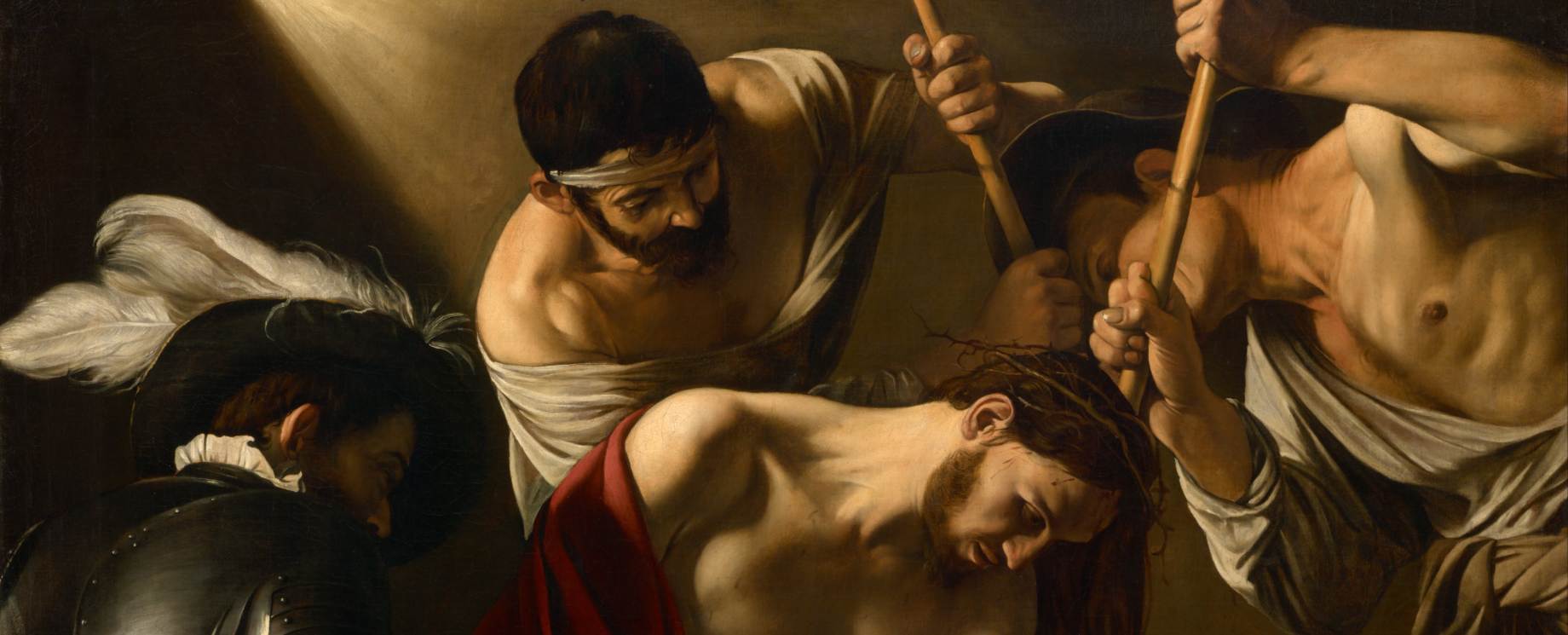Crown of Thorns
The Cross of Christ is central to Christianity. It is its focal point, the lens through which the Bible is read; not only the New Testament but also the Old. Prophecies made hundreds of years before Christ find their fulfilment in him. The legal system of the Israelites finds its completion in him. So do the promised made. The majestic figures of the Old Testament are revealed to be more forerunners of him.
Christ is, in a real sense, central to history. While we might try remove explicit references to him, our system of years still finds its mid-point in the birth of Christ. Christ was the agent of creation, and his second coming will represent the end of history as we know it.
And yet the dramatic climax of history took place in Jerusalem, a city important to Judea, but not to anyone else. It involved no fireworks; when it happened, the people involved fled into the night. Many witnessed it, but at the time few, if any, understood it. The closest was a Roman centurion, recorded as saying: “Surely this man was the Son of God!” (Mark 15:39)
And understandably so. A man being take outside the city gates to be hung, cursed, on a tree, hardly matched the expectations of a nation waiting for its Messiah. The Messiah was supposed to be triumphant. Later, rabbis would wonder if Simon bar Khokhba, who led a short-lived but spectacular rebellion against the Romans, was the Messiah. But this rebellion obviously failed.
And a close reading revealed many prophecies that only made sense as pointing to Christ. The most immediate prophecy comes from Isaiah 53:
But he was pierced for our transgressions,
he was crushed for our iniquities;
the punishment that brought us peace was on him,
and by his wounds we are healed.
We all, like sheep, have gone astray,
each of us has turned to our own way;
and the Lord has laid on him
the iniquity of us all. (Isaiah 53:5-6)
And such prophecies were there from the start. After Adam and Eve were cursed, the Lord pointed to a moral Messiah when He said to the serpent:
[Eve’s offspring] will crush your head, and you will strike his heel. (Gen 3:15)
On the cross, Jesus would quote the beginning of Psalm 22:
My God, my God, why have you forsaken me? (Ps 22:1)
That same Psalm ends:
Posterity will serve him;
future generations will be told about the Lord.
They will proclaim his righteousness,
declaring to a people yet unborn:
He has done it! (Ps 22:30-31)
And essentially this is what was fulfilled by the writers of the New Testament: they proclaimed to the likes of us that Christ’s sacrifice has won the battle of righteousness.
